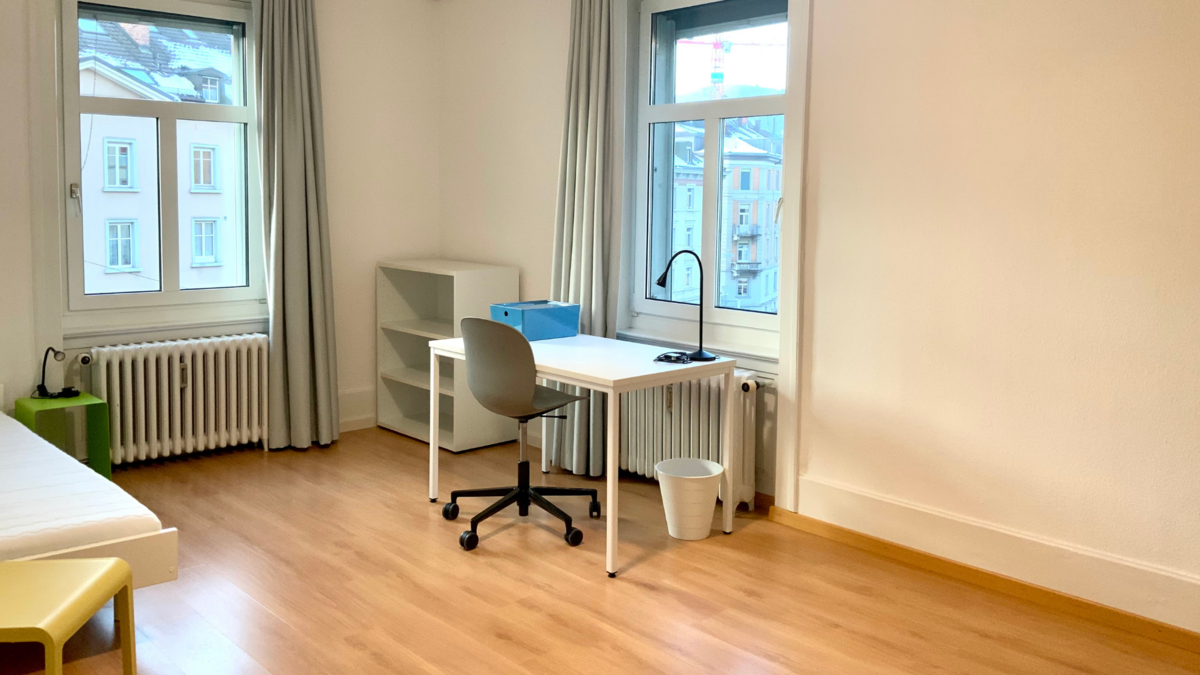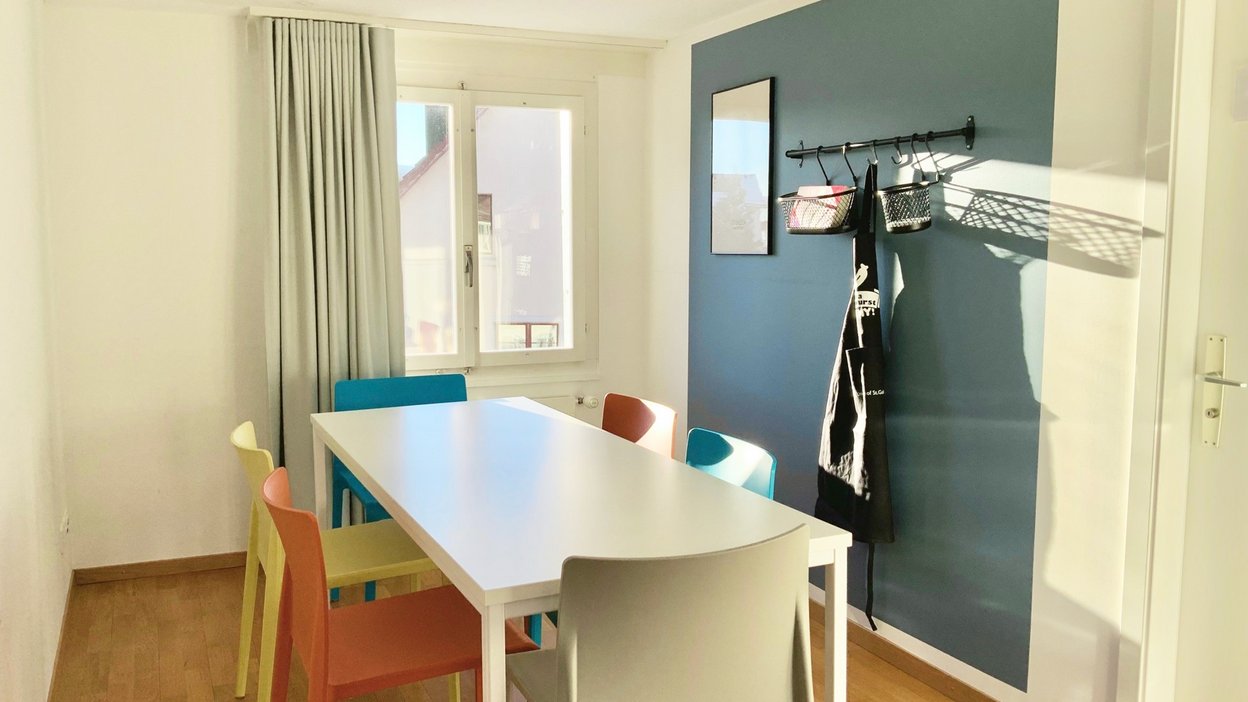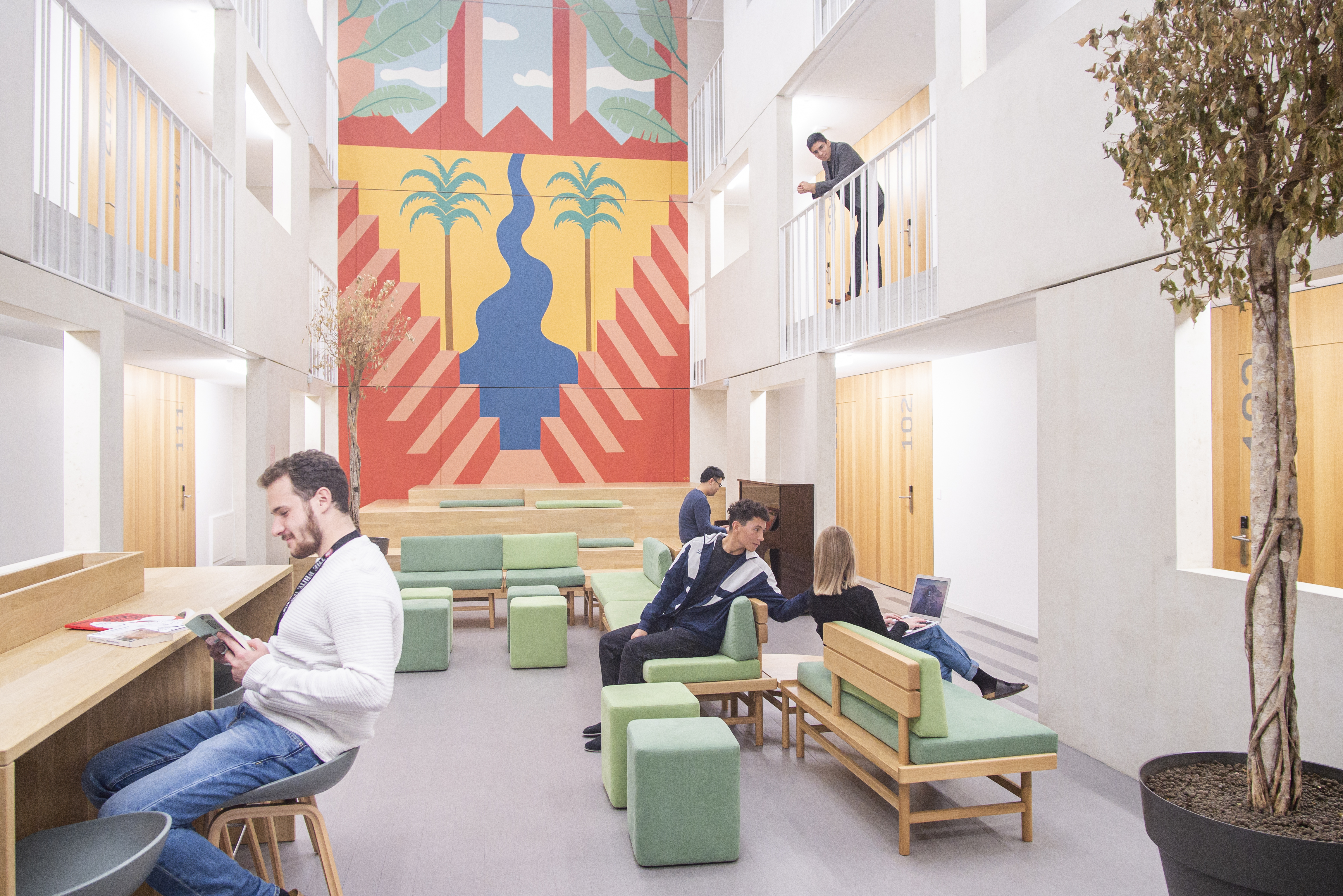Housing – a challenge and an opportunity for internationalisation

International students are experiencing increasing difficulties in finding accommodation. The example from the Netherlands shows that measures are being introduced to regulate international students and warnings regarding the housing situation are being communicated to them by the higher education institutions. In Canada, an alternative housing model has been developed that offers international students affordable student residences that are independent of colleges and universities. The aim is to counteract the shortage of family housing due to the conversion to student accommodation. In Switzerland, too, the housing shortage in popular regions is a reality for many students, with internationally mobile students appearing to be at a disadvantage in their new environment.
If you have a good range of accommodation for international students, it is easier for them to integrate on campus and socialise with local students.
(Peggy van der Wallen, Head of Student Mobility Services UNISG)
Housing can be seen not only as a challenge, but also as a support measure for international mobility. This observation was made in the report 'Mobility Rates and Internationalisation Index of Swiss Higher Education Institutions”, which was published under the direction of Lucas Haldimann and on behalf of Movetia 2023 (see Movetia article). The provision of accommodation for international students and lecturers is one of the internationalisation indicators that shows a strong correlation with the mobility rate. Such an accommodation offer can have a positive effect on incoming mobility, but also on outgoing mobility: By making it easier for incoming students to organise a stay, an international study environment is promoted, which has a positive effect on their own outgoing mobility. The mix of local and international students and lecturers therefore has a decisive influence on outgoing mobility.

It is an advantage for our students if they can talk to guest students about their home university. This personal exchange helps our students a lot in their decision making, when choosing an exchange university.
(Peggy van der Wallen, Head of Student Mobility Services UNISG)
Promoting student accommodation in a targeted and diverse way
Peggy van der Wallen, Head of Student Mobility Services at the University of St.Gallen, was also able to make the latter observation. The Housing Office provides an important service for international students and exchange students. The University of St.Gallen offers an interesting example of how higher education institutions can specifically support their internationalisation strategy by promoting student housing. On the one hand, it invested in its own student housing units at a very early stage, while on the other hand it has discovered alternative low-cost options such as the Facebook community "Sharing is Caring" for mobile students. We were able to record UNISG’s insights on the topic of housing and the perspective of an exchange student in an interview.
The International Student Housing Report, which was published in collaboration between the Erasmus Student Network (ESN) and the European Students' Union (ESU) in 2023, also provides further important findings on the topic of housing:
- Overall, the data shows the importance of both university-provided accommodation and private housing options in accommodating exchange students. While halls of residence offer a sense of community and comfort, flexibility and independence are valued in private accommodation.
- The analysis of the survey emphasises the need for the participating institutions to expand their housing support services for students. Developing a strategy for finding accommodation can improve the overall satisfaction and well-being of exchange students. The type of support provided by the higher education institution can vary from offering its own accommodation, sharing important information about housing options and working with partners and referring students to them.
- The greatest difficulties in finding accommodation for students were also analysed. These primarily include the early payment of a high rental deposit, often before receiving funding, a lack of information about the housing situation in the host region and the language barrier in relation to the rental contract.

The partnership with the Fondation Maisons pour Etudiants Lausanne (FMEL) aims to promote the internationalisation of our university. In this way, an attempt is being made to secure a series of exchange agreements.
(Cédric Rychen, Head of the Office for Social Affairs and Student Mobility (SASME) UNIL)
How collaborations enable accommodation options for international students and lecturers
We were able to conduct a second interview in the Swiss context with Cédric Rychen, Head of the Office for Social Affairs and Student Mobility at the University of Lausanne. The University of Lausanne has a partnership with the Fondation Maisons pour Etudiants Lausanne (FMEL), a Swiss non-profit organisation that aims to plan, build and operate houses for student accommodation. The partnership has also enabled the University of Lausanne to secure places for international mobilities. The housing offer in Lausanne is not only aimed at students, but also at guest lecturers, who can also contribute to the internationalisation of the higher education institution. Despite increasing online collaboration in research and teaching, real, physical meetings between people from different academic cultures remain central. Further impressions from the perspective of the University of Lausanne can be found in the following interview.
Specific recommendations
What concrete measures can universities take to provide the best possible support for mobile students in the area of housing? The ESN and ESU report has collected concrete suggestions for supporting exchange students before, during and after their mobility. Some examples of the recommendations are:
- A clear division of tasks between the home and host institution regarding the search for accommodation
- The establishment of a peer-to-peer support mechanism (outgoing students offer their accommodation to incoming students)
- Analysing the accommodation trends of exchange students
To summarise, higher education institutions can make a difference in the housing search and exchange experience in the areas of communication, information sharing and legal support.